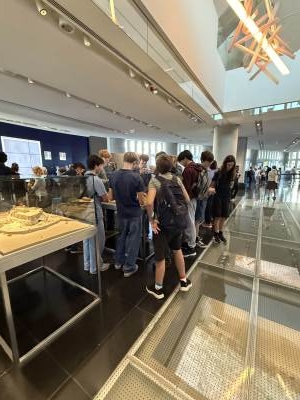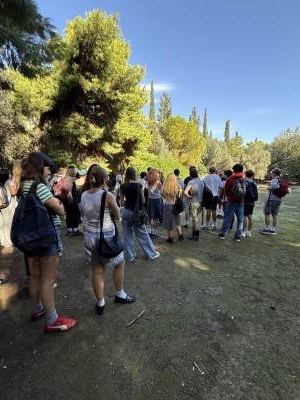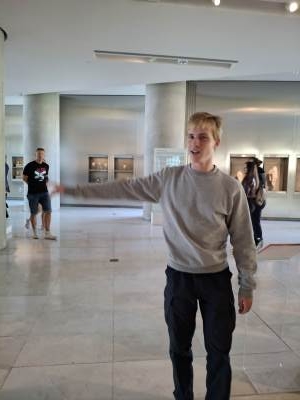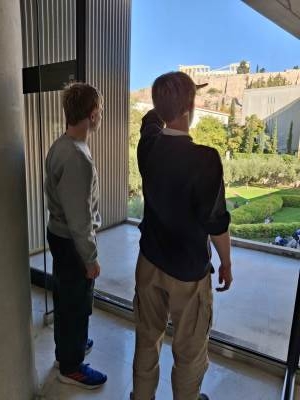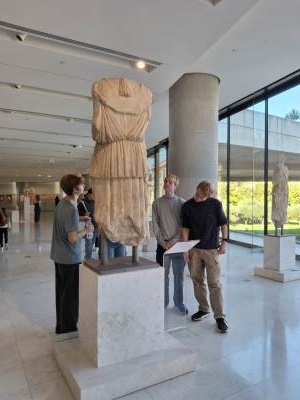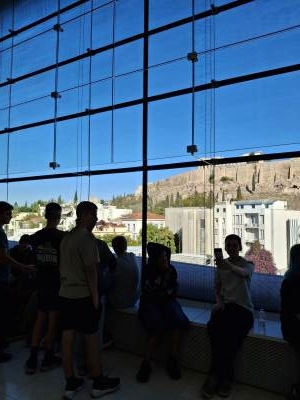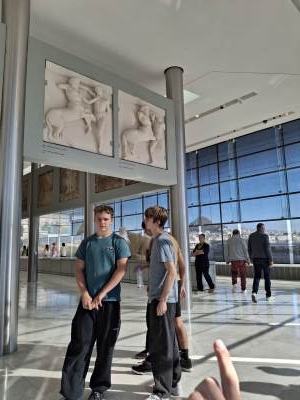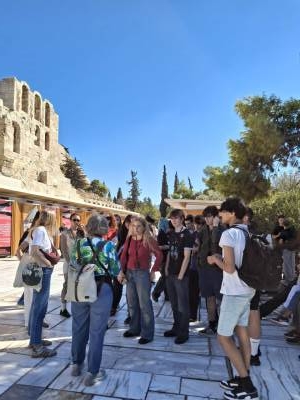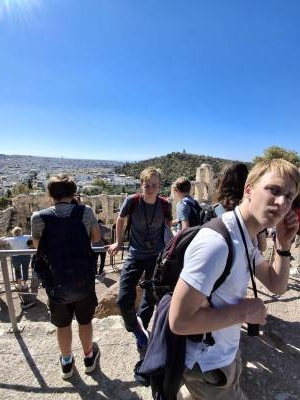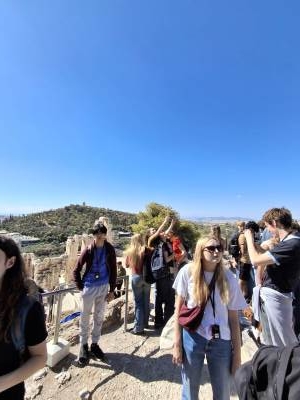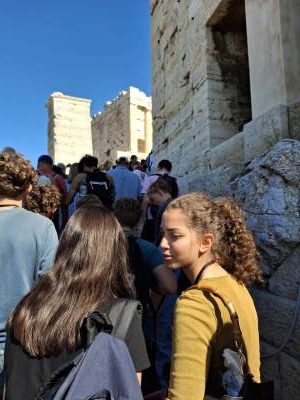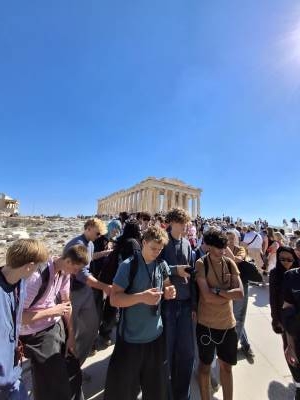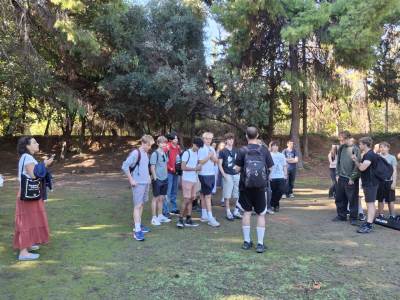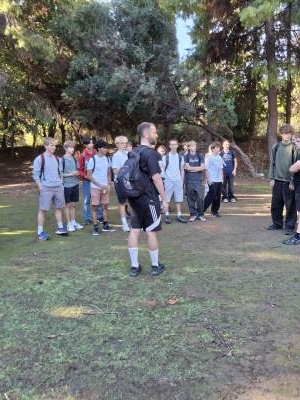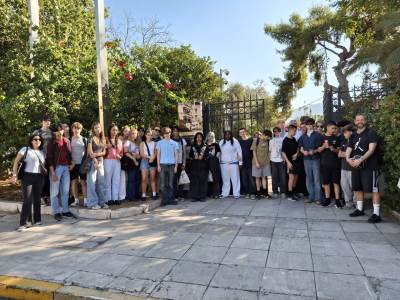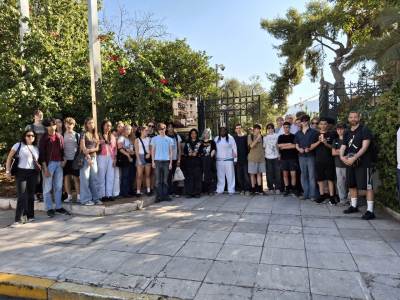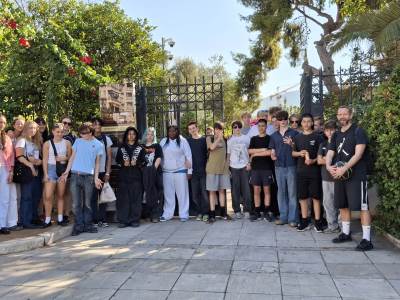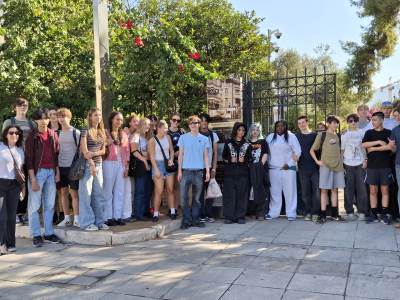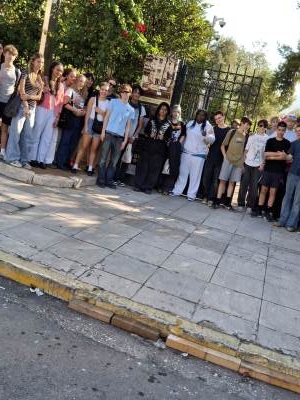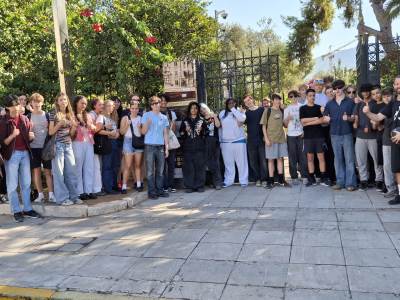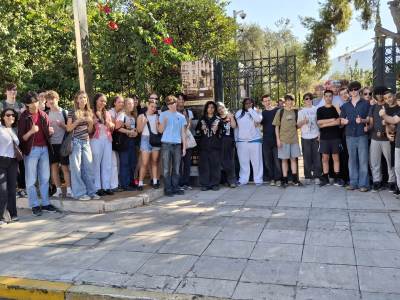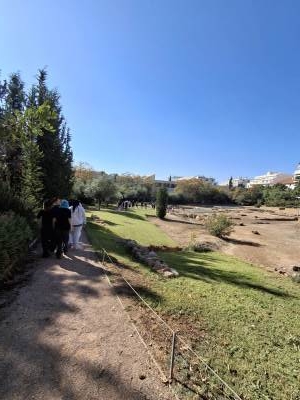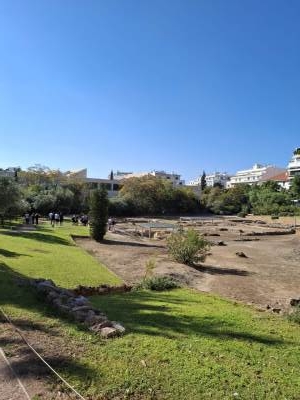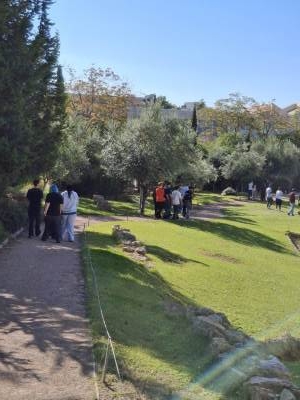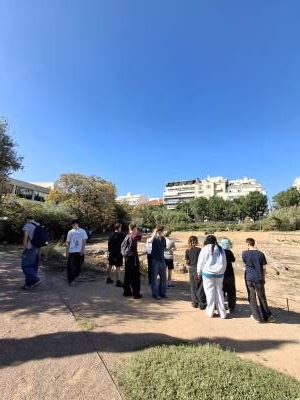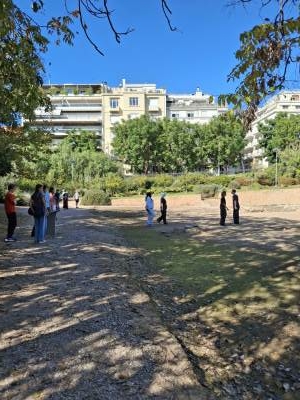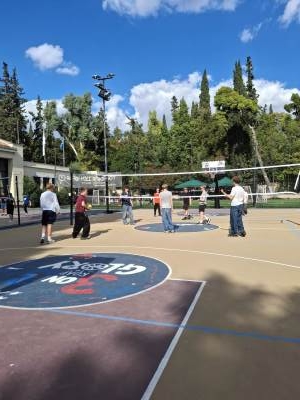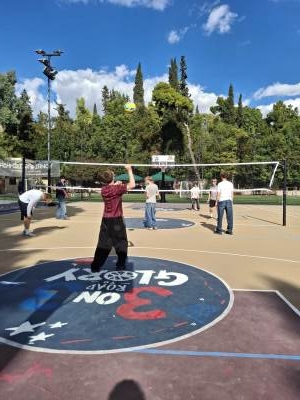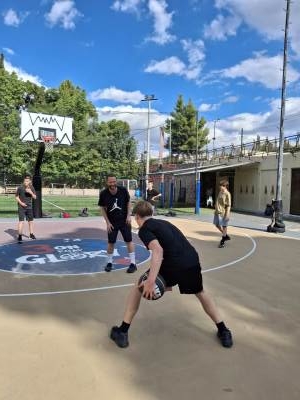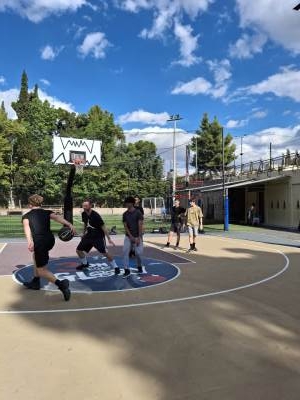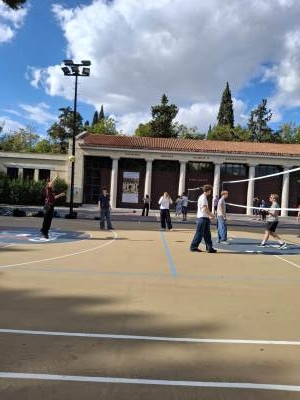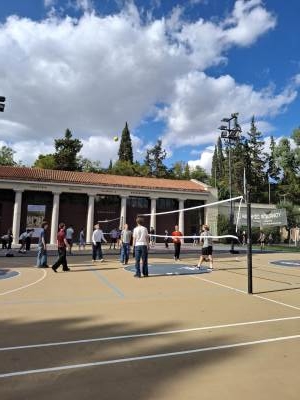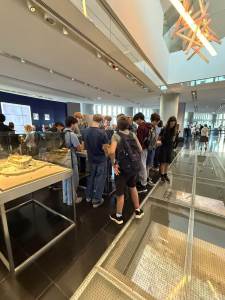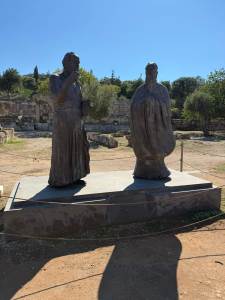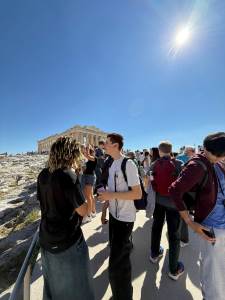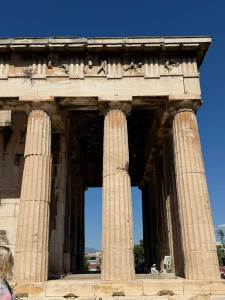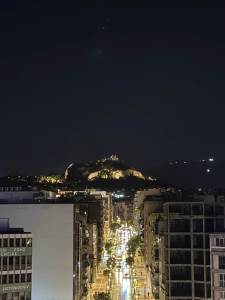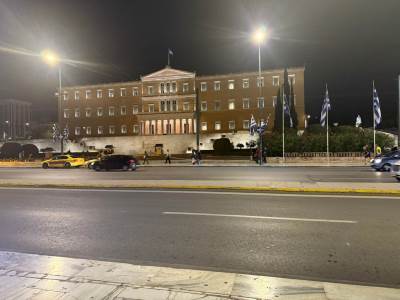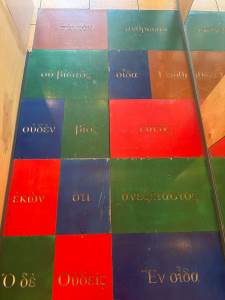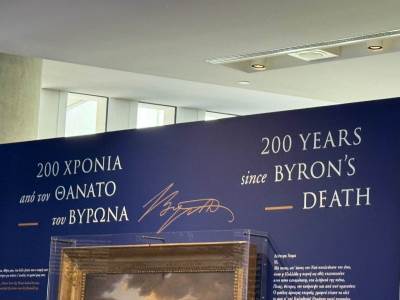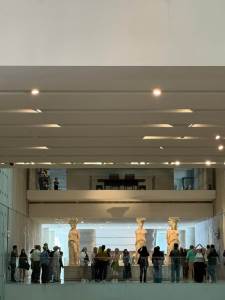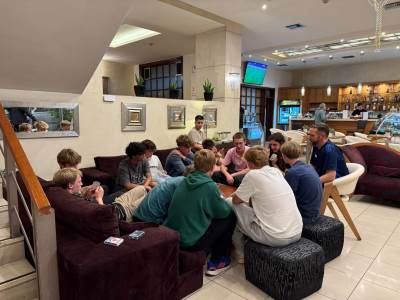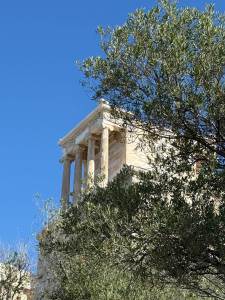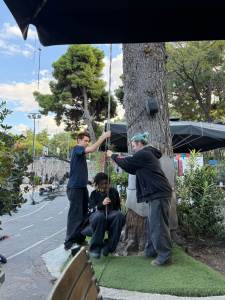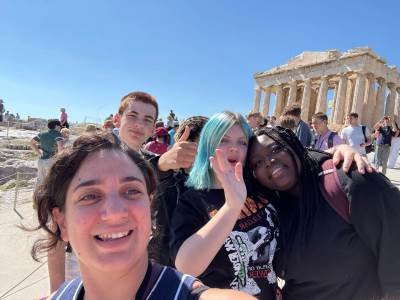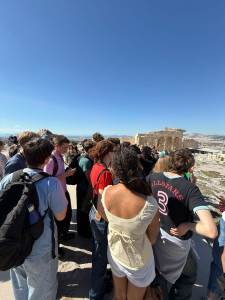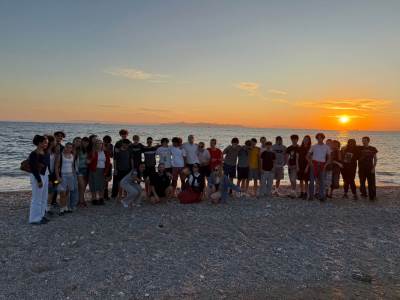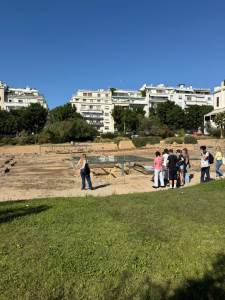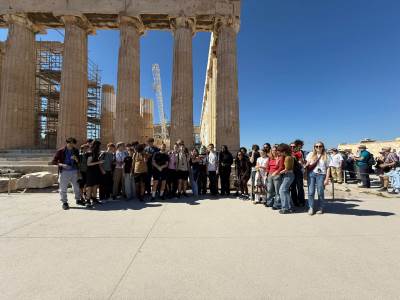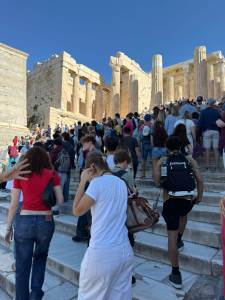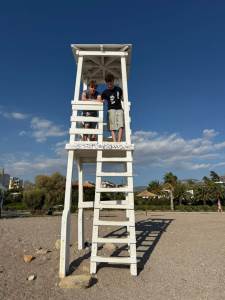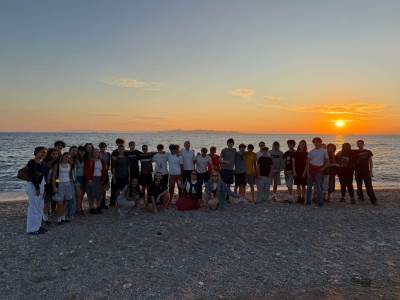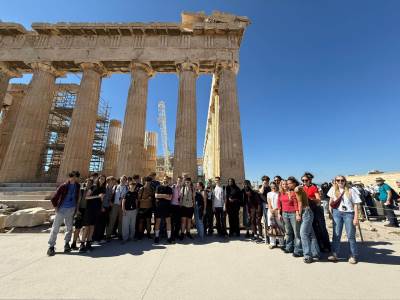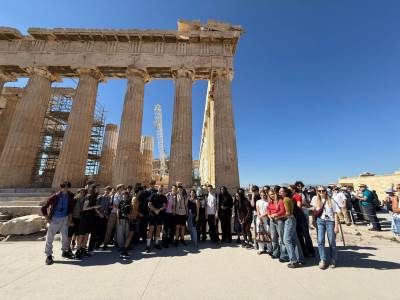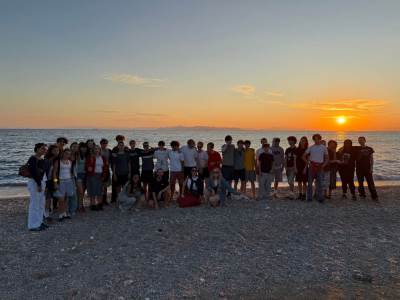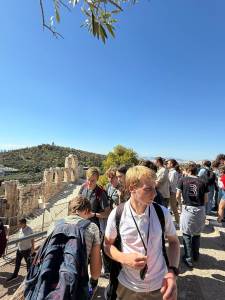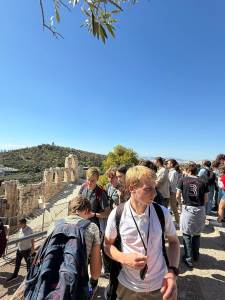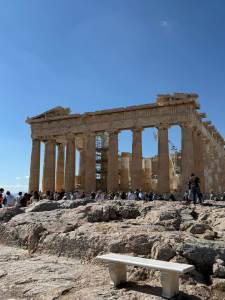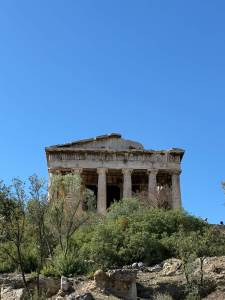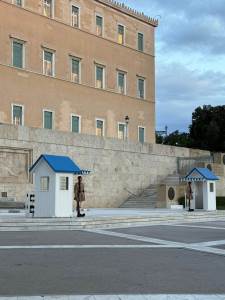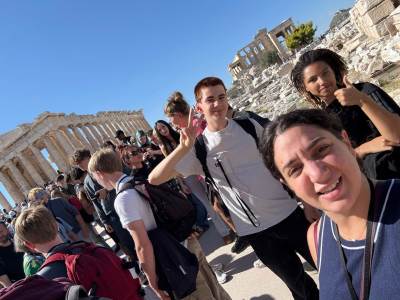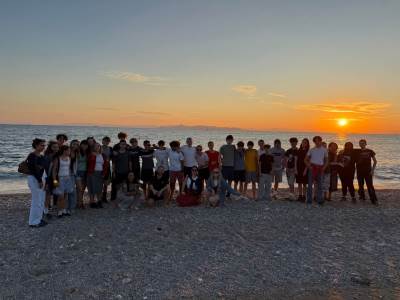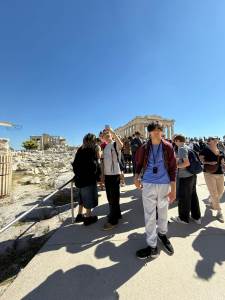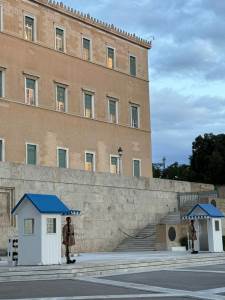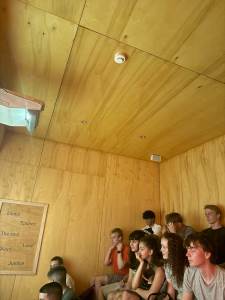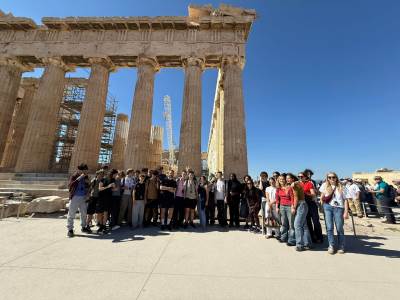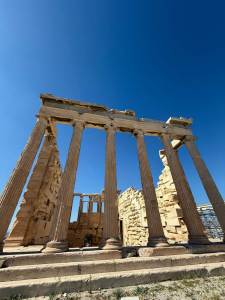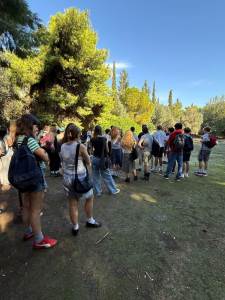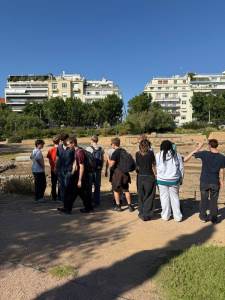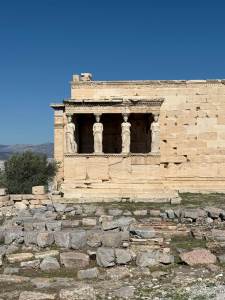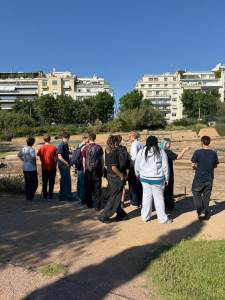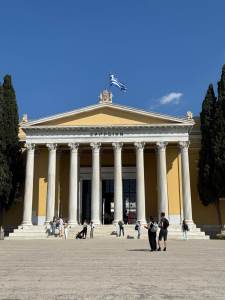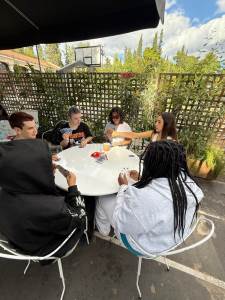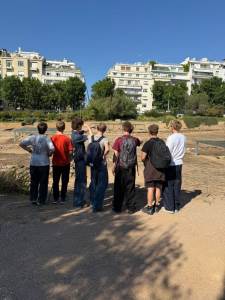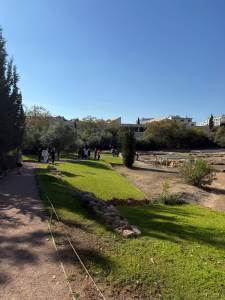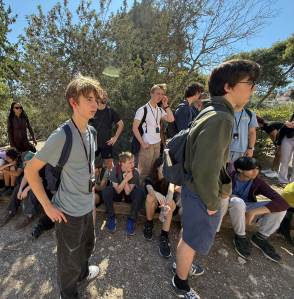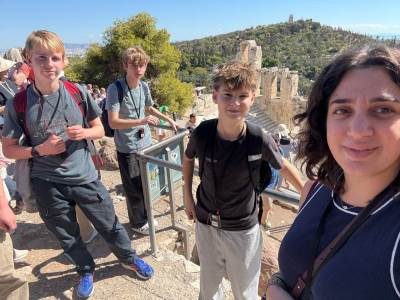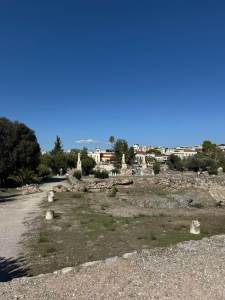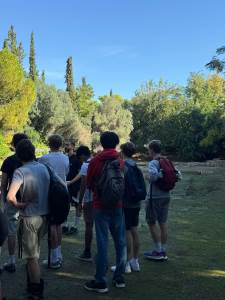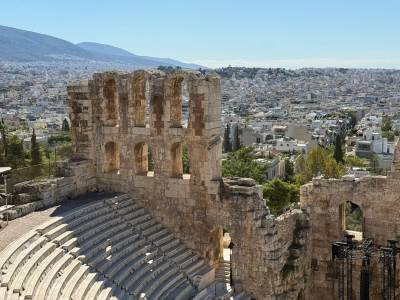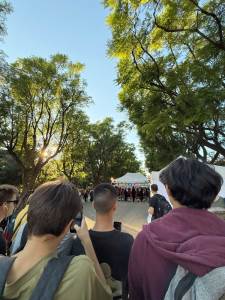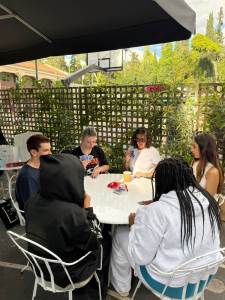Religious Studies
" The unexamined life is not worth living. - Socrates "
The Religious Studies curriculum at Acland Burghley not only gives students a broad and coherent understanding of religious and non-religious worldviews; as distinct phenomena in themselves, but also of the development of religions and non-religious worldviews over time and in relation to each other. Religious Studies engage pupils in an enquiry approach to help develop understanding of the influence and impact of principle religions and worldviews on their own communities and the global context. Students are encouraged to explore belief systems, cultural practices and how these relate to society at present. Thus, the RS curriculum promotes respect and understanding of individuals and communities, whilst enabling pupils to reflect and develop their own worldviews.
Curriculum Intent
RS develops skills in the disciplines of Theology, the Human/Social Sciences and Philosophy, and through these lenses’ students are encouraged to interrogate religions and differing worldview. This enables students to be equipped with the knowledge and skills for further study in these academic areas. RS is taught in the school as a distinct subject with cross-curricular links to other subjects in the school such as Art, English, History and Personal Development.
In line with Acland Burghley’s vision, the RS curriculum is intended to develop students’ creative capabilities through a range of activities which develop the Creative Dispositions. RS promotes high levels of attainment through differentiated lessons which stretch and challenge student thinking, and enable all learners to engage and make excellent progress.
The subject further encourages students to be part of community life; focusing on studying the range of worldviews of local people where possible, and through extracurricular activities such as visiting places of worship. The RS curriculum is inclusive and promotes excellence for all through the careful consideration of content and lesson activities to engage and provide provision for all learners.
Head of Humanities Faculty
Ayca Sonmez | asonmez@aclandburghley.camden.sch.uk
Head of Department
Luke Browne | lbrowne@aclandburghley.camden.sch.uk
Teachers
Rumana Hoque | rhoque@aclandburghley.camden.sch.uk
Matthew Vickery | mvickery@aclandburghley.camden.sch.uk
Curriculum
Curriculum Map
KS3
Students explore and evaluate key religious and non-religious worldviews chronologically from the Stone Age to present day in order to promote an understanding and appreciation of local, national and global communities, whilst reflecting on and developing their own worldview.
Y7
The first unit of work, Introduction to Religious Studies, gives students a clear understanding of RE as a distinct subject, whilst recapping key knowledge of the Major World Religions, to prepare students for their further study across KS3-5. Students begin their journey in the Stone Age with the History of Religion unit which explores the origin and development of spiritual beliefs and practices all the way up to the Bronze Age. This is followed by the Exploring Hinduism unit, which includes an immersive and experiential exploration into the life of Hindus, through a trip to the Hindu community at Bhaktivedanta Manor. The year ends with the unit What does it mean to be Jewish in the 21st Century? – which aims to address common misconceptions about Judaism in today’s world.
Autumn term 1: Introduction to Religious Studies
Autumn term 2 & Spring term 1: History of Religion
Spring term 2 & Summer term 1: Exploring Hinduism
Summer 2: What does it mean to be Jewish in the 21st Century?
- 1 Medium Term Plan Y7 Introduction to Religious Studies
- 2 Medium Term Plan Y7 History of Religion
- 3 Medium Term Plan Y7 Exploring Hinduism
- 4 Medium Term Plan Y7 Judaism
Y8
The journey through time continues with the unit Can Buddhism help people in today’s world?, which evaluates the religions key beliefs and practices. This is followed by an in-depth study of Christianity through two units: Who was Jesus? and What is Christianity all about? Finally, the unit How does Islam benefit society? analyses the impact of Islam on individuals, communities and society. Each unit is structured around an overarching enquiry question which encourages students to explore and evaluate the tradition in depth whilst promoting engagement and insight. The year ends with a local trip to the London Central Mosque and Hampstead Synagogue to further students’ knowledge and understanding of Islam and Judaism.
Summer 2: Flying start - What does it mean to be Jewish in the 21st Century?
Autumn term 1: Is Buddhism still relevant today?
Autumn term 2: Who was Jesus?
Spring term 1: Christianity, what is it all about?
Spring term 2: How does Islam benefit society?
Summer term 1: How does Islam benefit society?
- 1 Medium Term Plan Judaism
- 2 Medium Term Plan Buddhism
- 3 Medium Term Plan Jesus
- 4 Medium Term Plan Christianity whats it all about
- 5 Medium Term Plan Y8 Islam
- 6 Medium Term Plan Y8 Humanism
Y9
With the key Major World Religions studied in detail across Y7 and Y8, the journey continues into more recent religious phenomena with the Alternative Religions unit. New Religious Movements such as Wicca, Jehovah Witnesses and Scientology are taught, whilst the dangers of religious cults are also identified. The following unit What is Humanism? allows students to delve into a non-religious worldview, and evaluate its approach to truth. Students are now well placed to move onto the study of Ethics and Philosophy, through the Ethical Dilemmas and What is a person? units. These units enable students to address challenging and ultimate questions such as ‘Is Capital Punishment right?’ and ‘What is the purpose of life?’, through applying their knowledge of religions and worldviews gained across the key stage.
Summer 2 Flying Start & Autumn 1: Alternative Religions
Autumn term 2: Does being a Humanist help to make life more enjoyable?
Spring term 1: Ethical dilemmas
Spring term 2: What is a person?
Summer term 1: Religion and the Media
- 1 Medium Term Plan Alternative Religions
- 2 Medium Term Plan Religion and the Media
- 4 Medium Term Plan What is a person
- 5 Medium Term Plan Ethical Dilemnas
Suggested reading
Daily newspapers to find out about topical ethical issues and ‘The Religions Book: Big Ideas Simply Explained’.
Useful websites
- True Tube
- BBC Learning Religious Studies
- RE Online (particularly the Subject Knowledge section)
Things to see and do
Visit local places of worship e.g. St Pauls Cathedral, London Central Mosque and Neasden Mandir.
Extra-curricular activities and clubs
- Y7: Hindu temple trip to Bhaktivedanta Manor
- Y8: Hampstead Synagogue and London Central Mosque trip
- Y9: Mormon and Jehovah’s Witness visiting speakers
KS4
Through the AQA GCSE Religious Studies course students explore and evaluate in greater depth two of the Major World Religions, Buddhism and Christianity. This enables students to understand and appreciate the traditions in themselves whilst continuing to reflect on and develop their own worldview. Key ethical issues are evaluated from both the viewpoint of religious traditions and non-religious perspectives, allowing students to develop their own approach to ethical questions.
Y10
The key beliefs, teachings and practices of Buddhism and Christianity are studied alongside each other, allowing students to compare and contrast these worldviews, and laying the foundation for applying one of the traditions to ethical issues in Year 11. Beginning the year with the beliefs and teachings units allows students to understand the following units on practices with clarity and insight. Students develop skills in analysis and evaluation through considering key issues within the traditions, whilst also assessing the influence of the founders on the religions and their adherents. A trip to the London Buddhist Centre, allows students to experience a Buddhist place of worship first hand, and reflect on key beliefs, teachings and practices such as the life of the Buddha, impermanence and meditation.
Autumn term: Buddhism: beliefs and teachings, Christianity: beliefs and teachings
Spring term: Buddhism: practices, Christianity: practices
Summer term: Buddhism: practices, Christianity: practices, Mock Exam Revision
Y11
Key ethical issues are explored through thematic units of work, which allow students to apply their knowledge of Christianity gained across Key stage 3 and 4. Students develop their knowledge of ethical issues and religious and non-religious perspectives towards them in order to evaluate and develop an informed and justified response. The religious traditions of Liberal Christianity and Fundamentalist Christianity are applied to the ethical issues, giving students an appreciation of divergence within a religion, and of such standpoints across religions.
Autumn term: Religion: crime and punishment, Relationship and families
Spring term: Religion and life, Religion, peace and conflict
Summer term: GCSE exam revision
GCSE Subject Specification
Please click through to the links to view more information on the AQA website.
Religious Studies - AQA Exam Board
| https://filestore.aqa.org.uk/resources/rs/specifications/AQA-8062-SP-2016.PDF |
Suggested reading
Daily newspapers to find out about topical ethical issues and ‘AQA GCSE Religious Studies A: Christianity and Buddhism Revision Guide’.
Useful website
Things to see and do
Visit local Christian churches and Buddhist temples.
Extra-curricular activities and clubs
Y10 Buddhism trip to the London Buddhist Centre.
Athens Trip Photos:
Athens 2025
KS5
Through the OCR A Level Religious Studies course students explore in greater depth philosophical and ethical issues relating to religion along with a further study of the Islamic tradition. Students develop further skills in analysing and evaluating key issues and giving an informed and justified response, in order to promote understanding and tolerance of individuals and communities reflect on and develop their own worldviews.
The course equips students with key skills needed to progress into higher levels of education and/or the working world. Students develop their independent study skills and time management, along with the ability to understand and respect the wide range of perspectives which they are likely to encounter in today’s work place.
As part of the LaSWAP consortium, Acland Burghley offers a Religious Studies: Philosophy, Religion and Ethics A level.
Extra-curricular activities and clubs
- Y12 trip to a Sunni and Shia Islamic place of worship.
- Y13 trip to Cambridge University for a study skills workshop and tour of the university.


